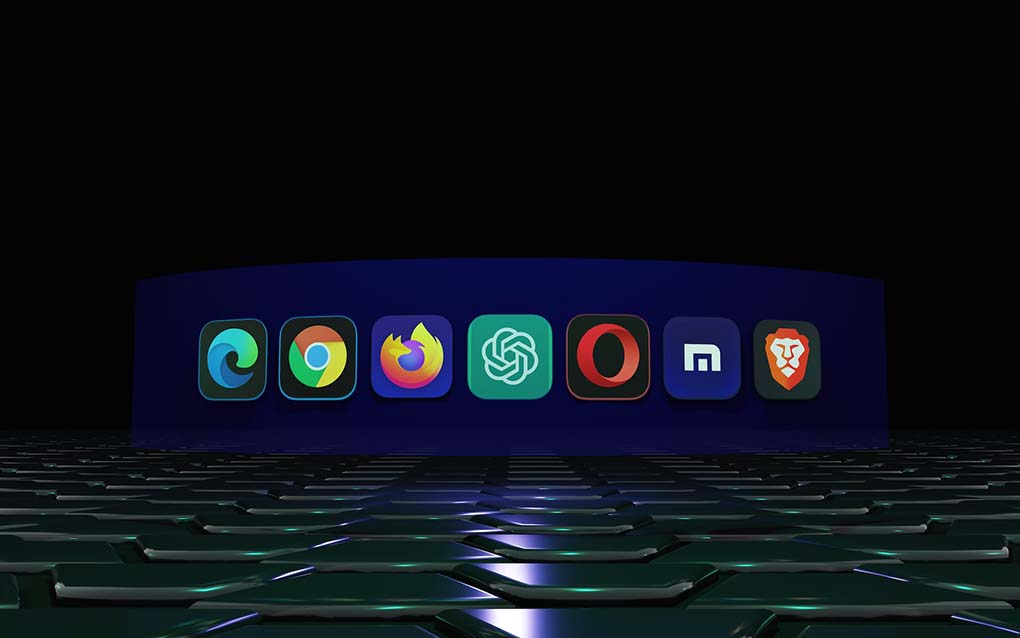ChatGPT’s impact on education
How has ChatGPT impacted education?
Artificial Intelligence (AI) has become a permanent part of our lives. Today, AI exists in our homes, in our phones and at our work. It influences the way we do business and interact with others. Arguably the most well-known AI chatbot to date is ChatGPT. So, what is ChatGPT? What is ChatGPT’s impact on education and how should we respond to it?
What is ChatGPT?
ChatGPT (Generative Pre-trained Transformer) is an AI chatbot, developed by OpenAI, with the capability of producing human-like responses based on user prompts. ChatGPT is not a search engine (like Google is) as it does not retrieve information from the internet in real-time. It is like a ‘brain’ containing a wide range of training data to generate responses based on the prompts it receives.
What are the strengths and weaknesses of ChatGPT?
STRENGTHS:
- ChatGPT stores a large amount of information about a wide range of topics.
- It can answer questions and produce content quickly in human-like text.
- It can generate personalised information based on the user’s prompts.
- Its answers can be refined and improved with further prompting.
- It can generate responses in different languages.
WEAKNESSES:
- ChatGPT is entirely reliant on prompts. It can go rogue when the prompts that feed it are not detailed enough.
- It doesn’t understand context and may produce responses irrelevant to the prompt.
- It is limited in creativity and originality. It can only produce results based on information that people have provided. In other words, its output is only as good as the input.
- ChatGPT can produce inaccurate or incorrect statements (called hallucinations) without warning the user.
- ChatGPT3 and 3.5 only contain data up to the year 2021.
- There is a risk of hackers accessing data and other sensitive information entered into ChatGPT by users.
How has ChatGPT impacted the education industry?
STUDENT SUCCESS
Today, many students have access to ChatGPT on their digital devices. It can help them write essays, rewrite paragraphs, summarise a journal article, gather information and brainstorm ideas.
ChatGPT can act as their personal tutor. However, students need to be taught the right prompts to use to attain relevant information and the responses by ChatGPT are a baseline only. Students still need to do two tasks:
- Customise the responses by ChatGPT to their assessment task.
- Research the responses provided by ChatGPT and cite a reference to the source material.
To do these tasks, students require critical thinking and analytic skills, as well as knowledge of the subject matter.
TEACHING PLANS
Lecturers can use ChatGPT to develop lesson plans, class discussion questions, essay questions, assessment tasks, reports topics and educational policies. However, ChatGPT can only provide suggestions - the final decision and result are still the lecturer’s responsibility.
Like their students, teachers will also need to employ the right prompts to use to attain the information they want.
MARKING ASSESSMENTS
ChatGPT can help automate tasks such as grading assignments and providing feedback. Unfortunately, the misuse of ChatGPT has led to a lot more work for lecturers to verify answers and check for student understanding.
STUDENT CAPABILITIES
With ChatGPT, students can now access a multitude of information from one location quickly which has improved student engagement with learning. ChatGPT is an information hub and students no longer need to conduct so many hours of their own initial research.
However, the accuracy of this information still needs to be verified, and students need to know the subject matter well to evaluate it critically. There is also a risk of students having fewer opportunities to practice skills such as creating ideas and composing a written argument.
Vanessa Stafford, Director of Academic Learning at KBS, discusses the use of Generative AI in education and writing. She shares how ChatGPT can be used by teachers, students, and professionals to enhance learning and career development.
ChatGPT and prompt engineering
You need to know how to interact with ChatGPT to get the best responses.
Remember, ChatGPT is not a search engine - just typing in one phrase or one question may not deliver the complete answer that you’re looking for.
Brief ChatGPT like you would brief a person at work. Provide context and specific details not broad terms. And if you are not satisfied with ChatGPT’s response, refine your prompts with more details.
Below are 4 ways to engineer your prompts to help you get the best answers from ChatGPT.

Examples of prompts:
• You are a lecturer at a business school. List 3 discussion questions about business management you can ask students at the beginning of the class. List it in dot points.
• You are a tour guide in Japan. List the most beautiful landmarks to visit within 3 days and why. List it in dot points. Keep the landmarks within Tokyo and Hokkaido.
You can also use the free code camp resource to help you with prompt engineering.
How should we respond to ChatGPT?
ChatGPT is not one of those tools that will eventually go away. It will continuously evolve to become smarter and more integrated with our lives.
ChatGPT took only 2 months to have over 100 million users and now generates 1.8 billion visitors per month. ChatGPT4 was launched this year with the ability to work with photos that users upload and exhibit more human-level performance and intelligence (e.g. passing an Ivy league law exam). ChatGPT5 is due to launch in 2024.
The launch of ChatGPT has led to Google, Microsoft, China’s Baidu, Salesforce and Meta all entering the generative AI space. Google AI launched Bard, and Salesforce is working with OpenAI on ‘Einstein GPT’. In January 2023, Microsoft announced a $US10 billion investment with OpenAI and has now integrated ChatGPT plugins with its Copilot 365 AI program.

Anna Mihaylov, the Academic Director of Analytics, Accounting and Finance at Kaplan Business School, says that ChatGPT has led to 4 main responses from her team:
1. Educating students about how ChatGPT works and how to use this tool appropriately for assessments. Reminding them that ChatGPT has limitations and can provide incorrect information so its responses need to be investigated.
2. Revising content and learning outcomes to incorporate AI assisted tasks but with a continued focus on developing essential career skills such as critical thinking, construction of ideas, communication and research.
3. Innovating assessments to encourage students to use AI as a tool (an enhancement of their own skills and ideas) in role plays, presentations, conversations with the lecturer, and personal reflections.
4. Developing ethical guidelines around using Generative AI relating to student privacy and academic integrity.
ChatGPT will evolve to provide users with broader responses to even the most obscure questions. It will beat tests and exams as fast as they are made and start strategising like a human being as it trains on more data and as more people use it.
ChatGPT and other generative AI models will be an ever-increasing part of our lives. Our responsibility is to understand how it works and use it appropriately and ethically.
Interested in studying business analytics and learning more about artificial intelligence applications? Learn about our Master of Business Analytics and about studying business in Australia.









